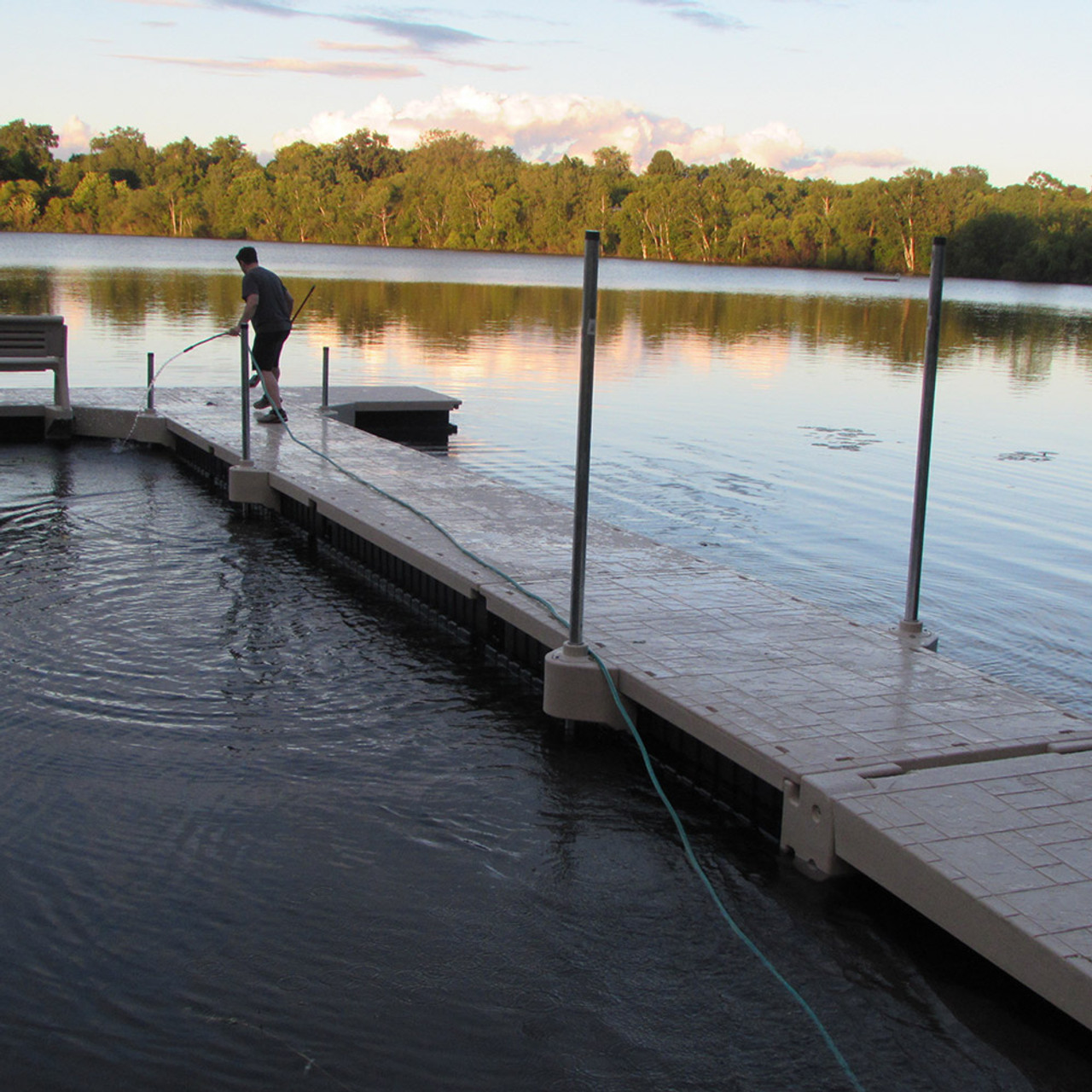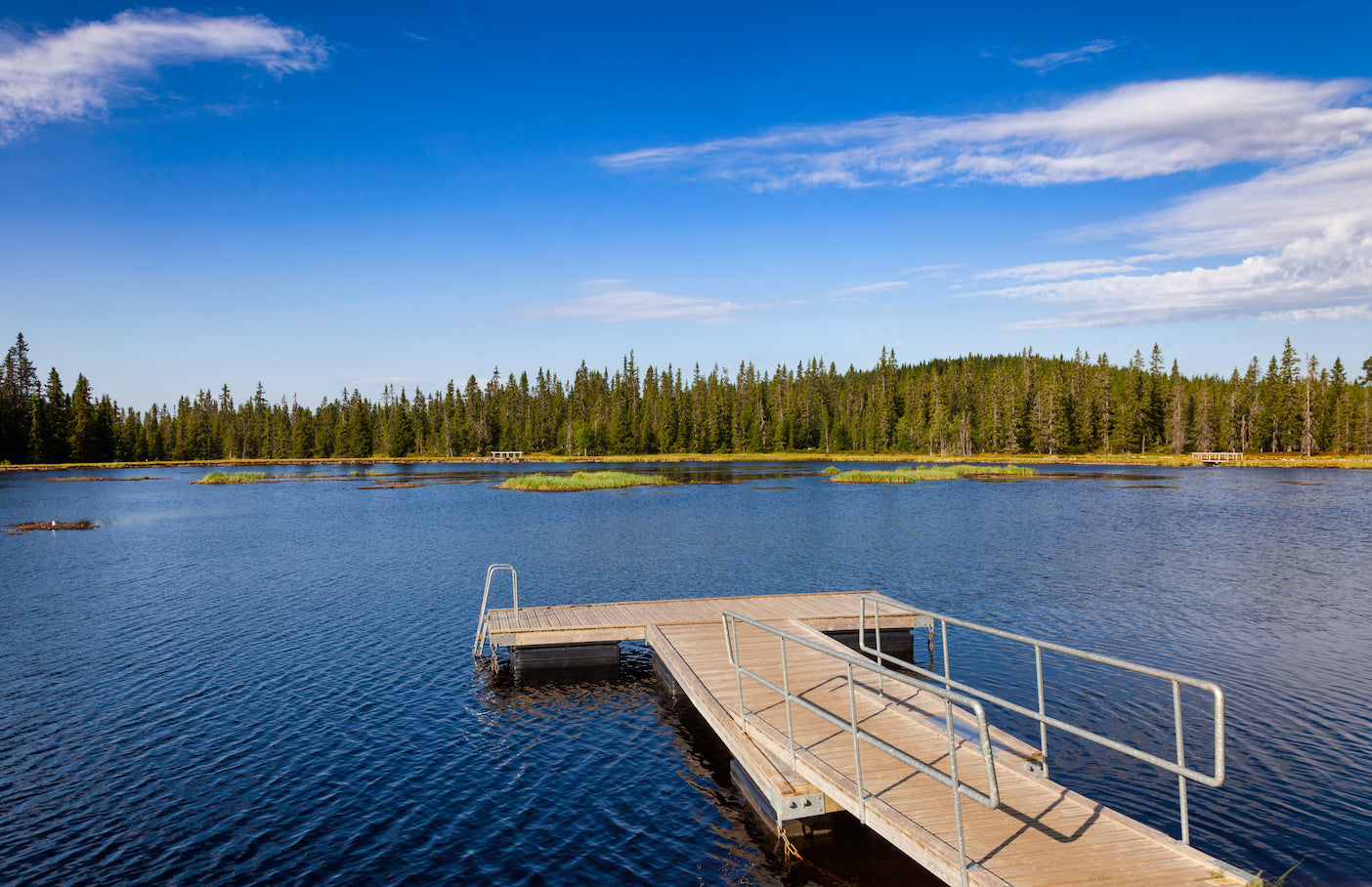Floating Docks: The Smart Choice for Modern Waterside Living and Leisure
Floating Docks: The Suitable Selection for Versatile Water Access
Floating docks present a compelling service for a selection of water gain access to requires, offering versatility that goes beyond typical mooring choices. Their capability to adapt to ever-changing water degrees while making certain stability and safety and security makes them specifically helpful for both entertainment and business applications. Furthermore, the modular nature of floating docks promotes modification, satisfying particular requirements. However, the nuances of setup and upkeep, together with the series of applications, warrant a closer evaluation to completely appreciate their potential advantages and effects for waterway accessibility approaches.
Benefits of Floating Docks
Floating docks offer various benefits that improve water access for various applications. Their capacity to fluctuate with altering water degrees makes them particularly helpful in atmospheres with rising and fall trends or seasonal variations. This versatility makes certain that vessels can quickly anchor without worry for the water's deepness, supplying a reliable platform for leisure, commercial, and commercial usages.
In addition, floating docks are frequently created from resilient products that withstand rust, making them appropriate for long-lasting usage in marine settings. Their setup is commonly much less invasive than conventional fixed docks, reducing the environmental influence and assisting in quicker release (floating dock company). This flexibility permits for less complicated relocation or reconfiguration according to customer needs or environmental adjustments
Safety is one more vital benefit; floating docks can supply stable accessibility for people getting off or boarding from watercrafts and reduce the threat of crashes related to unpredictable surface areas. They can be created to fit a variety of accessories, such as fenders and cleats, improving capability. Overall, floating docks represent an effective solution for improving water access across diverse fields while promoting security and ecological sustainability.

Sorts Of Floating Docks
Numerous types of floating docks cater to different demands and environments, each made with certain functions to maximize performance. One of the most typical types consist of modular docks, which consist of interlacing sections that permit easy customization and growth. These docks are ideal for leisure use, as they can be customized to fit various boat sizes and water conditions.
One more preferred alternative is the stationary floating dock, which continues to be anchored in place however floats with changing water degrees. floating dock builder. This type is especially suited for locations with very little tidal variations, supplying secure accessibility for angling or swimming. In addition, there are drive-on docks, which include a sloped layout that allows watercrafts to quickly drive on and off, making them appropriate for individual boat and smaller vessels
For industrial applications, heavy-duty floating docks are readily available, created from strengthened materials to hold up against considerable loads and severe marine atmospheres. Eco-friendly floating docks make use of sustainable products and designs to minimize environmental impact, commonly integrating attributes like vegetation to support local wildlife. More hints Understanding the numerous sorts of floating docks guarantees that customers can choose one of the most ideal service for their details needs.
Installation Refine Overview
A successful installment of floating docks calls for careful preparation and attention to detail to make certain ideal performance and safety and security. The initial step includes examining the site conditions, consisting of water depth, current, and prospective barriers. This analysis notifies the choice of the suitable dock materials and design customized to the specific atmosphere.
Following, getting required authorizations is vital, as several jurisdictions have policies pertaining to building and construction on water bodies. As soon as permissions are secured, the setup can proceed. Begin by preparing the foundation, which might include anchoring systems or pilings customized to the dock kind and neighborhood conditions.
Complying with the structure setup, assemble the dock sections according to producer specs. Ensure that all components are securely attached and aligned to stand up to ecological tensions. Placement the dock in the marked area, guaranteeing it is degree and secure.

Upkeep Tips and Best Practices
After the setup process is complete, continuous upkeep plays an important role in guaranteeing the longevity and functionality of floating docks. Normal assessments must be performed to determine any kind of signs of wear, degeneration, or damage - floating dock builder. Look for any type of loosened Visit This Link installations, splits, or splitting up in the dock areas, as these can endanger structural integrity
Cleaning the dock is important to eliminate particles, algae, and other build-up that can influence its appearance and safety. Use a gentle pressure wash periodically to maintain sanitation without creating damages to the surface area. Additionally, using a safety sealer every few years can assist improve long life and stand up to environmental wear.
Focus on the mooring lines and anchors, ensuring they are totally free discover this and safe from corrosion. Change any degraded components promptly to prevent risks. Seasonal modifications might likewise be needed; throughout severe climate problems, repositioning or enhancing the dock can protect against damages.
Applications for Floating Docks
Floating docks offer a multitude of applications, satisfying both industrial and entertainment demands. In entertainment setups, they supply seamless access to rivers for tasks such as boating, fishing, and swimming. Their adjustable nature allows for setup in varying water levels, ensuring secure and secure access no matter of tidal variations.
Commercially, floating docks are essential for marinas and waterfront businesses. They assist in the docking of vessels, enabling reliable discharging and filling of goods. Their modular layout permits easy development or reconfiguration to fit altering organization needs, making them optimal for boat rentals, excursion procedures, or angling charters.
Furthermore, floating docks are used in environmental applications such as marine research study and habitat reconstruction. They can serve as systems for scientific research studies, keeping an eye on water top quality, or conducting wild animals studies without disturbing delicate environments.
In commercial contexts, floating docks are utilized in building and construction tasks, providing accessibility to hard-to-reach locations for devices and workers. Their flexibility, toughness, and marginal effect on the environment make them an optimum selection for a large range of applications, improving both performance and availability in various water-based settings.
Verdict
To conclude, floating docks stand for an optimum option for diverse water access needs, owing to their versatility, sturdiness, and modular style. These frameworks help with risk-free mooring for different applications while decreasing ecological influence during installation. The minimized maintenance demands better improve their functionality. Thus, floating docks act as a beneficial asset for recreational, commercial, and ecological jobs, making sure reputable accessibility to rivers and advertising lasting practices in marine settings.
Floating docks present an engaging remedy for a range of water gain access to requires, offering convenience that transcends typical mooring options.Floating docks offer many benefits that enhance water access for numerous applications. In general, floating docks stand for an effective service for boosting water access across diverse markets while advertising safety and security and ecological sustainability.
An additional popular choice is the stationary floating dock, which stays anchored in area yet drifts with altering water degrees.In conclusion, floating docks represent an optimum service for diverse water access needs, owing to their flexibility, toughness, and modular style.